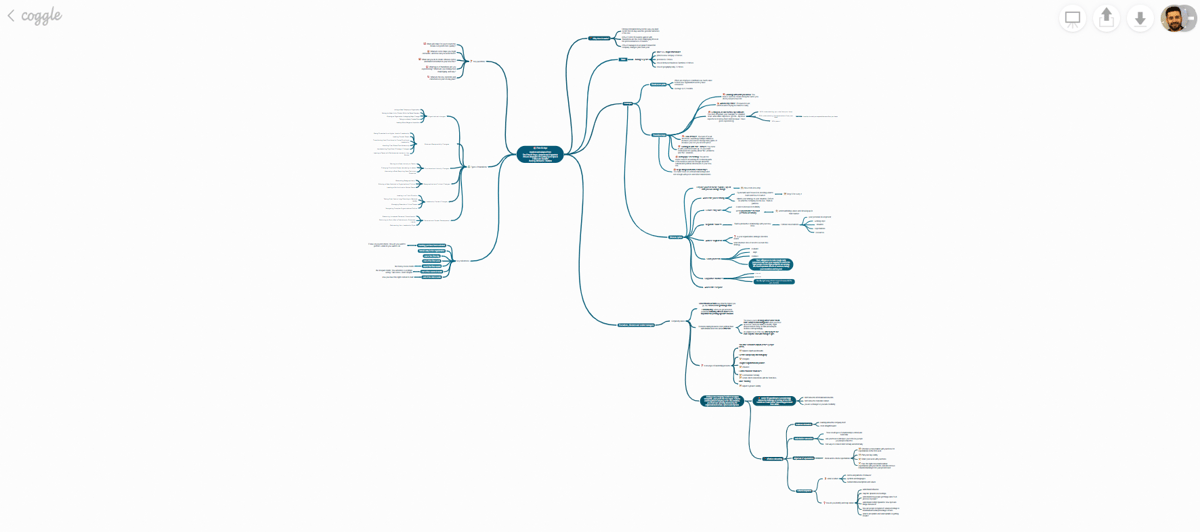One thing that often comes up in my mentoring sessions is what's the best way to onboard when going into a major career transition. New role, new company, new culture. I've helped many navigate this tricky phase, and over time I created a mind-map that summarizes the most important points to review.

Here are a couple of powerful things you can actually use in your first 90 days to make a strong and confident start.
Why you should care
Landing a new role is like jumping on a moving train. You’re handed a laptop, a glossy 30‑60‑90 days template (if you are lucky), and the quiet expectation that you’ll be at your best by the end of quarter one. The reality is tough:
- 90 % of new leaders say they feel unprepared the day they step into a new seat.
- Studies put the failure or “disappointment” rate of leadership transitions between 27 % and 46 % two years in.
- When things go wrong, it's usually because of people and company culture—not because someone lacked technical skills.
I like to break the rules - don't treat the first 90 days as a finish line. They’re a launch pad. Here are three practical moves that help you stop stressing about quick wins and start building real progress for yourself.
1. Write Your 90‑Day Story First
“What do I want people to say about me on day 90?”-
Most onboarding guides start with a task list—systems to learn, goals to hit. Fair enough. But you can do better. Open a blank page and draft the one‑paragraph story you want your manager, peers, and team to tell about you three months from now. Keep it plain-speak, present-tense.
But here’s the catch. When we actually start this exercise in mentoring sessions, most people write something like this:
"By the end of her first quarter, Ana has become the go‑to person for simplifying our sales pipeline, and people praise her for translating simple talk into actions the sales team actually uses."-
It's very results-oriented. It's focused on personal wins—how they solved something big or made an obvious impact. It often centers on proving their worth, on being seen as the hero.
There’s nothing wrong with that. After all, the company hired you to deliver results. But there are two problems with this kind of story:
- It puts pressure on short-term performance before you even understand the system you're stepping into.
- It ignores relationships, trust, and how people actually perceive your presence—how you make others feel, not just what you fix.
So try writing a version that balances outcomes with reputation. Aim for impact and connection.
Why this works
- Clarity beats volume. A single story turns dozens of “nice‑to‑have” goals into a tight lens for decision‑making.
- Early alignment. Share the draft with your manager in week 1; refine it together. You’ll surface silent expectations before they bite you.
- Built‑in reflection. Every Friday, ask: “Did my actions this week make that story more likely?” The answer guides next week’s priorities.
2. Run a Learning Sprint before an Action Plan
“Slow down so you can speed up.”-
The greatest pitfall of new hires is acting too fast with half‑baked context. The pressure is real—new environment, new team, sometimes even a relocation. You feel the need to prove yourself quickly. Someone’s already asking about a roadmap. Your peers are watching. The boss wants a win.
That pressure often leads to rushed decisions, copied templates from your last job, or early promises that are hard to keep.
Guard against it by running a focused Learning Sprint for the first 21 days. This is a deliberate block of time to explore, listen, and challenge your assumptions. On the mind-map I use with mentees, this falls under "Observe and Map": what problems truly matter, what unspoken rules shape decisions, and which efforts in the past failed—because those patterns often repeat.
Don’t mistake motion for momentum. Take the time to learn before you build.
- Observe for the first 7 days. What’s the real customer problem? Where does work get stuck?
- Listen for the next 7 days. Who owns influence vs. org chart power? What previous change fizzled and why?
- Synthesize for the next 7 days. What patterns repeat? Which assumptions proved wrong?
Rule of thumb: Aim to kill five assumptions for every one you keep. Capture insights in a two‑page field guide and review it with your manager or mentor. Only then lock your 90‑day priorities.
Quick guard‑rails
- Resist “importing” your last success template. What worked in your last job might not work here.
- Separate signal from noise. Not every loud complaint is a burning platform.
- Time‑box it. A sprint creates urgency; it’s not permission to analysis‑paralysis.
You’ll emerge with sharper questions, fewer blind spots, and a to‑do list rooted in reality, not guesswork.
3. Win Sideways, Not Just Upwards
-Your manager might write your review, but it’s your teammates and peers who shape your reputation. How you show up in those first few weeks—curious or closed, helpful or territorial—sticks. Most transitions that fail don’t do so because the work wasn’t good. They fail because something didn’t click with the people around you.
That’s why one key part of the mind-map I share with mentees is about mapping relationships. The goal isn’t just to meet people—it’s to understand what they care about, how they communicate, and what kind of help they value. When people feel seen and heard, they start to trust. And that trust makes everything else easier.
Instead of focusing only on impressing your boss, invest time into understanding your peer group. You’re not just trying to fit in—you’re trying to connect in a way that makes your role feel natural to them. When that happens, they start rooting for your success. That’s when real collaboration begins.
Your Trust Map
- Map key relationships fast.
Don’t wait for intros. Use the org chart and Slack/email history to build a list of 10–15 people across functions who are closest to the real action. - Prioritize by influence, not title.
Some of the most important voices won’t be in management. Think: who do others listen to? Who gets looped into every conversation? - Meet them with purpose.
Set up quick calls and ask thoughtful questions like:
- "What’s something people misunderstand about your work?"
- "What’s a small win that would really matter to your team?"
- "If you were me, where would you start?".
These early conversations aren’t just for notes—they’re about earning trust and gathering context. You’re not trying to be liked; you’re showing respect, curiosity, and that you get the big picture.
Real onboarding isn’t about learning names. It’s about understanding the emotional and practical grid that makes the org work.
Take notes in plain language, send a short recap—nothing fancy, just proof you listened. Two outcomes follow:
- Social capital snowballs. People repeat the experience: “She actually got my world.”
- Hidden landmines surface early. You hear whispers about failed projects or sensitive stakeholders before you step on them.
Investing ten hours in coffee chats can save hundreds of hours untangling misunderstandings later.
Wrap‑Up & Next Steps
Your first 90 days aren’t about heroic productivity; they’re about direction, insight, and connection.
- Write your story → own the narrative.
- Learn ruthlessly → act with context.
- Win sideways → build the coalition that keeps ideas alive.
Ready to put this playbook to work?
Book a free mentoring session with me on MentorCruise. We’ll fine‑tune your story paragraph, design a tailored Learning Sprint, and map your first ten coffee chats. Mention this article and I’ll send you a free PDF checklist to track progress week by week.
See you on the journey—let’s make your next 90 days the launch pad they’re meant to be.







